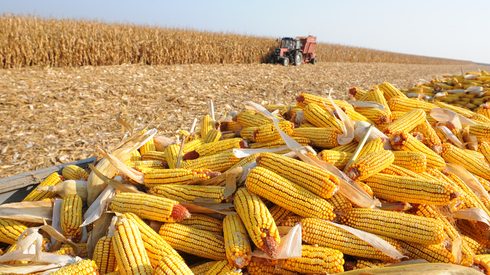This article was first published to Agricensus.com on June 21, 2021.
This year Argentina has faced several challenges to its agricultural and livestock sector resulting from weather conditions, politics, domestic and international economics as well as the Covid-19 pandemic.
As a key exporter of corn, wheat, soymeal and soyoil, the country has a huge and growing raft of importing customers for whom the situation could bring supply headaches.
Fastmarkets AgriCensus details some of the main issues surrounding these challenges, and discusses their impacts across logistics and trade dynamics.
Logistics
The Parana waterway – a key export route for agricultural commodities in Argentina, comprised of approximately 25 exporting ports and exporting around 80% of Argentinean commodities – is suffering from low water levels for the second consecutive year.
Dry weather conditions following a La Nina earlier this year have made river logistics challenging, because low water levels disrupt the shipment of grains, oilseeds and products from both Argentina and land-locked Paraguay.
More than 125,000 tonnes of beans and more than 60 barges have already been trapped since the waterway became impassable, with some of those vessels now expected to remain trapped until September at the earliest.
Water levels near the Rosario port were pegged in mid-June at around 0.6 meters versus the historical average of 3.5 meters, but a lack of rainfall this month is expected to deplete the river to 0.5 meters by June 23, thus disrupting logistics even further.
With vessels currently unable to take full loads at the Up River export hubs, physical corn premiums are expected to remain heavily negative through the peak export period for the country while supply mounts up on the quayside.
Parana concession
Alongside low water levels, issues over the concession to operate the key Parana waterway – which has been in the hands of the Belgian company Jan de Nul for the past 25 years along with the Argentine company Emepa – have led to uncertainty regarding the long-term future at a key juncture.
Despite some noise from officials around nationalizing the waterway, the government extended the existing concession to the Belgium company after it came to an end on April 30, for another three months, to ensure the waterways remained open while the government considers the future of the concession.
Now the government is working to launch a tender to select a temporary concessionaire for the Parana-Paraguay waterway later this year, but whichever company secures the contract is likely to face an intense struggle with nature if the rivers are to remain clear and operable.
“The [waterway] concession can be easily extended, but short renewals only bring uncertainty and discourage investment… and the Parana waterway requires a lot of investment,” said Matias Rajnerman, Argentinean economist from Ecolatina.
Inflation
Argentina’s inflation has skyrocketed this year and is estimated to reach 47% in 2021, according to Rajnerman.
In an attempt to tackle inflation, President Alberto Fernandez imposed a temporary export ban on beef in order to keep a lid on domestic beef prices, but that measure has been heavily criticized by economists and by members of the agricultural and livestock sector, and has spawned labor disputes.
An initial 30-day export ban imposed on May 20 caused anger for the livestock and agricultural sector, who argued it is not an effective way to tackle the inflation problem.
And many fear that the government will impose further measures – such as a potential increase in export taxes for agricultural commodities including grain, wheat and oilseeds, which are the main bulk export options for the country’s agricultural commodity exports sector.
“Market players in the industry are very worried about what is happening… and what the government can do next,” an Argentinean grain broker told Fastmarkets AgriCensus.
“It is just fueling uncertainty in the sector,” the grain broker added.
Earlier in April, the government threatened to increase export duties on grains as part of its attempt to decouple rising international prices from firmer domestic food prices, but the situation is causing havoc for forward planning and investment.
“Argentina is living in a constant state of economic uncertainty,” an Argentinean beef broker said to Fastmarkets AgriCensus.
“Producers do not know if we should sell, invest or divest,” the beef broker said.
Strikes
Finally, several strikes have been experienced in Argentina so far this year, stemming from a variety of factors ranging from unions demanding workers be vaccinated against Covid-19 through to discontent following the temporary ban on beef exports.
Strikes related to Covid-19 and the rollout of Argentina’s vaccination program started around late April, with several worker unions – maritime, logistics and custom officials – undertaking strike actions as they demanded access to Covid-19 vaccines for their members.
Also, following the beef export ban, protest actions were launched by the country’s main agricultural entities including CRA, FAA, Coninagro and the Rural Society in late May; those groups sided with beef producers when the export ban was first announced by President Fernandez.
“The government is blaming livestock producers for the high beef prices domestically… The sector is seen as an enemy,” the Argentinean beef broker said.
Strikes have affected shipments and logistics at Argentina’s ports, further aggravating the challenges that the country is facing this year.
By Liliana Minton






